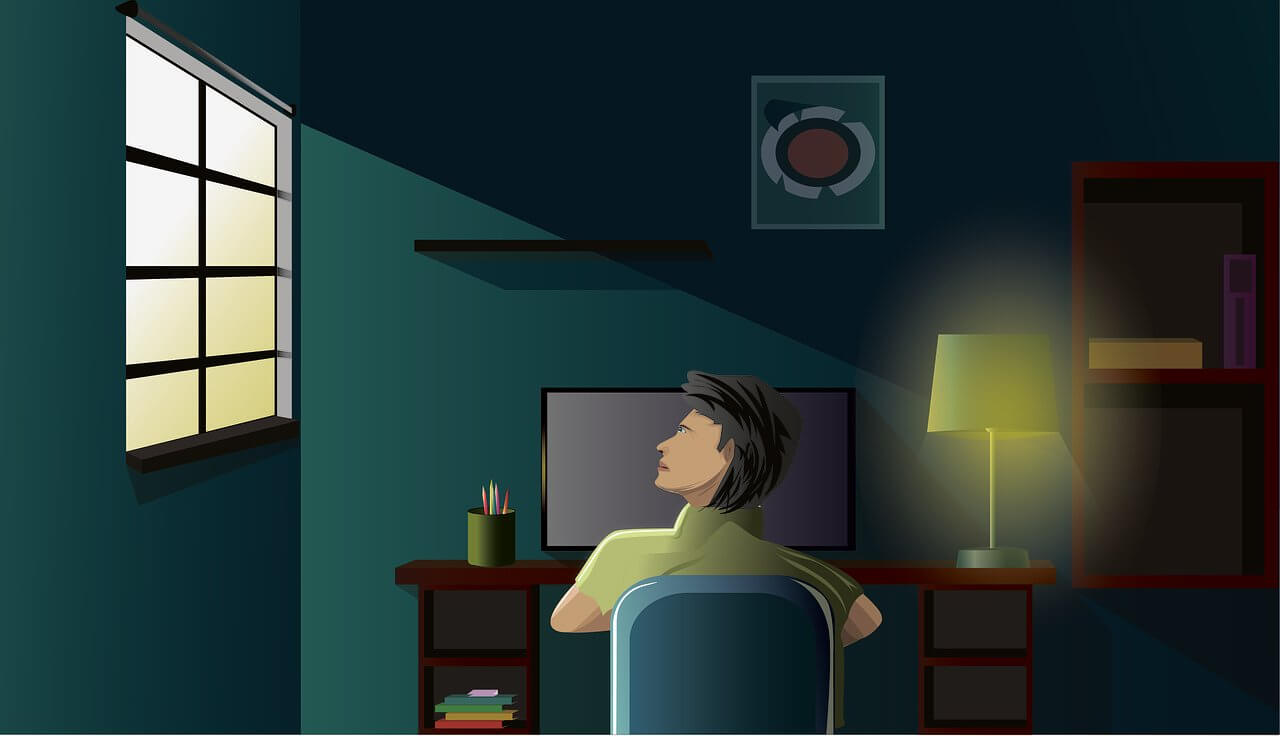5 proven ways to deal with anger in your family?
This blog post may contain affiliate links. If we find a product or service to be useful, we encourage you to visit the website via that link. If you make a purchase through our referral link, we may receive a commission. Rest assured, you will not be charged any additional fees. By using these links, you can support us while making your purchase. For more information visit here.
Relationships are brittle things. You can sever long-standing relationships with a few harsh words. How do you handle family conflict? When it comes to something that can cause conflict between two individuals, anger is the prime culprit.
Every day, dealing with anger makes it tough to live a healthy family life. So you should do everything you can to deal with anger in your family. You cannot expect to suppress all of your anger. However, you can learn to cope with it in a way that will pull them down rather than raise them up. Continue reading to learn how.
Anger is something that not only harms you but also those around you. If you constantly lose your temper in front of your children, they will eventually tremble and fear you. It’s also upsetting to see your children keep you safe. It is reason enough to have your rage under control.
If you need another reason, consider how anger will ruin your life. There is no way in the world to live an angry life without being stressed and even depressed. When attempting to restrain your anger, look at things from a different perspective. Consider how your spouse feels in a given situation so that you may empathize with them. Well, I just realized there’s a story behind the anger, and I thought I’d share it with you as well.
A family dealing with anger!
Once upon a time, there was a family of four – mother, father, and two children – who lived in a small but cozy house on the outskirts of a bustling city. While they loved each other, they often resent each other over small things.
One day, the family decided that they needed to find a way to deal with their anger in a healthy way. They sat down together at the dining table and came up with a plan. They decided that whenever they felt angry, they would take a step back and count to ten before reacting. Even if it meant admitting that they were wrong, they agreed to communicate openly and honestly with each other.
At first, it was difficult for the family to stick to their plan. They found themselves slipping back into old habits and getting angry with one another. But they didn’t give up. They continued to practice their plan and soon they noticed a change.
The mother, who used to get angry when the children didn’t clean up their rooms, began to approach the situation with more patience and understanding. She would calmly explain to the kids why it was so essential for them to keep their rooms clean. She would also collaborate with them to devise a plan for keeping things tidy.
The father, who used to get angry when he couldn’t find his tools, started to take a deep breath and count to ten before reacting. He realized that getting angry wouldn’t fix the situation, but looking for tools and organizing his workspace would.
The children, who used to get angry with each other over toys and games, learned to share and take turns. They also learned to express their feelings in a calm and respectful manner, rather than lashing out at each other.
As the family continued to work on their plan, they found that their relationships with each other grew stronger. They began to appreciate each other’s unique strengths and talents, and they supported each other through difficult times.
In the end, the family learned that dealing with anger in a healthy way requires patience, communication, and a willingness to change. It takes time and effort, but the rewards are worth it – a family that is happy, healthy, and filled with love.

Five ways to deal with anger in your family
Arguing and explaining your perspective is better than being sarcastic and hurtful in a discussion. Never raise your voice, no matter how much you wish to be heard. Tell your loved ones you enjoy separating things indulgently when it comes to sharing your feelings. Tell them the reason for this.
It will keep you from making your own decisions (which is terrible) and will foster efficient communication. If you have hurt someone in the past by being angry, explain that you were trying to change yourself. We have listed 5 tips below, which will help you better deal with anger in your family.
1. Understanding the root causes of anger in your family
Understanding the root causes of anger in your family means discovering hidden triggers. Knowing the root causes of anger in your family is an essential step in dealing with anger effectively.
When family members get angry, it is often a symptom of underlying issues, such as unmet needs, unexpressed emotions, or previous experiences, that trigger unresolved emotions. These underlying issues can be difficult to identify, as they are often deeply ingrained in family dynamics and patterns of behavior.
To understand the root causes of anger in your family, it is imperative to take a step back and observe the situations in which anger arises. Look for patterns in behavior, such as certain family members who tend to get angry more often than others or in particular situations that trigger intense emotions. It can also be helpful to reflect on your own experiences with anger and how you have learned to express or suppress it.
Once you have identified the patterns and triggers, you must have open and honest communication with your family members. Encourage them to share their experiences and emotions without judgment, and actively listen to what they have to say. By doing so, you can gain a better understanding of what is causing the anger and work together as a family to address the underlying issues.
Besides that, some of the root causes of anger may be beyond your control or the control of your family members. For example, past trauma or mental health issues may contribute to anger and require professional help to address them. In these cases, it is crucial to seek the help of a mental health professional who can provide guidance and support.
By doing so, you can work together as a family to create a safe and supportive environment. In this way, everyone will be able to meet their needs and resolve conflicts in a peaceful manner.
2. Strategies for managing your own anger in family situations
To manage your own anger, try to put yourself in the other person’s shoes and imagine how they might be feeling in the situation. Ask open-ended questions to encourage them to express themselves, and actively listen to what they have to say. Here are 6 strategies for managing your own anger in family situations:
Recognize and acknowledge your anger
The first step in managing your own anger is to recognize and accept when you’re feeling angry. By acknowledging your anger, you can begin to take control of your emotions and prevent them from escalating into destructive behaviors.
Practice self-care
Anger can be exhausting and can take a toll on your physical and emotional well-being. In order to deal with anger, practice self-care activities such as exercising, getting enough sleep, and taking time for yourself to recharge and relax.
Use relaxation techniques
Relaxation techniques such as deep breathing, meditation, and yoga can help you deal with anger by reducing stress and promoting calmness.
Choose your battles
Not every circumstance is worth becoming enraged over. It is critical to pick your battles and concentrate your efforts on the most pressing challenges. Allowing minor annoyances to be ignored can help you save energy for major ones.
Communicate effectively
Effective communication can help you manage anger by avoiding misunderstandings and resolving conflicts. Use “I” statements to express how you feel, listen actively to the other person’s perspective, and seek to understand rather than judge.
Practice empathy and understanding
Empathy is the ability to understand and share the feelings of another person. Practicing empathy can help you manage your own anger by helping you see things from the perspective of your family member, and by acknowledging their feelings and experiences.
By demonstrating empathy and understanding, you can build stronger connections with your family members, reduce conflicts, and foster a more positive family dynamic.
On the whole, using these strategies, you can learn to manage your own anger in family situations. This will enable you to create a more peaceful and supportive environment, and improve your relationships with your family members.

3. Communication techniques for diffusing anger and resolving conflicts in the family
Dealing with anger is a valuable skill in all areas of life, but it is especially critical in family relationships. Anger can be a destructive force that causes rifts between family members, erodes trust, and damages relationships.
Learning to manage your own anger and communicate effectively with family members can help to create a more peaceful and supportive family environment. This will strengthen your relationships and improve your emotional well-being.
By using effective communication techniques, and focusing on finding solutions rather than blame, you can learn to deal with anger in a constructive way. This will enable you to build stronger, more resilient family relationships. Here are 6 techniques that are essential for creating an environment where everyone feels heard, respected, and understood.
Active listening
Active listening is a technique that involves paying close attention to what the other person is saying and responding with empathy and understanding. This technique can help to reduce misunderstandings, increase empathy, and improve communication.
Use “I” statements
When expressing your own feelings, using “I” statements can help to avoid accusations and blame. For example, instead of saying “you’re always ignoring me,” say “I feel ignored when you don’t respond to my messages.”
Avoid criticism and blame
Criticism and blame can be hurtful and can escalate the conflict. Instead, focus on expressing your own feelings and needs, and encourage the other person to do the same.
Take a break
If emotions are running high, it’s helpful to take a break from the conversation and come back to it later. This can allow both parties to calm down, reflect on the situation, and approach it with a cooler head.
Use humor
Humor can be a powerful tool for diffusing tension and defusing conflict. Use humor to lighten the mood and help both parties feel more comfortable.
Focus on finding a solution
Instead of focusing on who is right or wrong, focus on finding a solution that works for everyone. Brainstorm ideas together, and be open to compromise and creative solutions.
By using these communication techniques, you can diffuse anger and resolve conflicts in the family positively. These techniques can help to improve communication, build empathy, and foster a stronger sense of connection and understanding among family members.
4. Creating a safe and supportive family environment to reduce anger.
Creating a safe and supportive family environment is crucial for reducing anger because, when family members feel safe and supported, they are more likely to communicate openly. It is crucial to resolve conflicts sensibly, rather than resorting to angry outbursts or aggressive behavior.
A safe and supportive family environment helps family members develop resilience, which is the ability to bounce back from difficult situations. When family members feel supported, they are better able to cope with stressors and challenges, which can reduce feelings of anger and frustration. For creating a safe and supportive family environment to reduce anger:
Establish clear boundaries
Setting clear boundaries can help to reduce conflict and ensure that everyone in the family feels respected and valued. This might involve setting rules for behavior, privacy, or communication, and enforcing consequences if those boundaries are crossed.
Encourage open communication
Open communication is the key to building strong family relationships. Encourage family members to express themselves openly and honestly, and be willing to listen to their viewpoints without judgment. In particular, this is for the parents of the family.
Prioritize quality time together
Spending quality time together as a family can help to build stronger bonds and foster a sense of connection and belonging. This might involve regular family dinners, game nights, or other shared activities.
Model positive behavior
As a parent or role model, your behavior sets the tone for the rest of the family. By modeling positive behavior, such as patience, understanding, and compassion, you can create a more nurturing family environment that is less likely to lead to anger and conflict.
Foster independence and autonomy
Encouraging family members to develop their own interests and hobbies, and to pursue their own goals and ambitions, can help to create a sense of autonomy and reduce conflicts over control and power.
Practice forgiveness
Forgiveness is a key component of building strong family relationships. By practicing forgiveness, you can create an environment that is more compassionate and less likely to lead to anger and resentment.
Seek outside support if necessary
If conflicts in the family become too intense or difficult to resolve on your own, don’t be afraid to seek outside support from a therapist, counselor, or other professional. Getting help early can help prevent conflicts from escalating and causing long-term damage to family relationships.
By creating a safe and supportive family environment that prioritizes communication, empathy, and understanding, you can reduce anger and conflict. This will strengthen family relationships and build a happier and more resilient family unit.

5. Seeking Professional Help: When and how to get help dealing with anger in the family.
Dealing with anger in the family can be challenging, and sometimes seeking professional help becomes your first and last option. Here are 9 signs that it may be time to seek help from a mental health professional to deal with anger in your family:
- You are experiencing intense and frequent anger that is difficult to control, and it is affecting your daily life.
- Your family members or loved ones complain about your anger and how it is impacting your relationships.
- You have been engaging in violent or aggressive behavior towards family members or others.
- Your anger is causing you to engage in risky or self-destructive behaviors, such as drug or alcohol abuse.
- You are experiencing physical symptoms such as headaches, chest pains, or high blood pressure because of your anger.
- You have difficulty resolving conflicts or communicating effectively with family members or loved ones, leading to constant tension or arguments.
- Your anger is negatively impacting your job, school, or other significant areas of your life.
- You are experiencing feelings of depression, anxiety, or other mental health issues that are affecting your ability to manage anger.
- You have tried to manage your anger on your own but have been unsuccessful in reducing your anger or improving your relationships with family members.
If you are experiencing any of these signs, you must seek help from a mental health professional who specializes in anger management or family therapy. So the summary turns out to be rough:
- Anger impacts your daily life;
- The anger is causing harm;
- Or the anger is persistent.
A counselor can provide you with tools and strategies to help you manage your anger in a healthy way and improve your relationships with family members.
If you have decided to seek professional help, there are several options available:
Individual therapy: Working with a therapist can help you identify the root causes of your anger, develop coping strategies, and improve your communication skills.
Family therapy: If anger is impacting your family, family therapy can help everyone work together to identify and resolve issues, improve communication, and strengthen relationships.
Group therapy: Group therapy can be helpful if you want to connect with others who are experiencing similar issues and learn from their experiences.
Anger management programs: These programs can provide structured support and guidance to help you learn healthy coping skills and strategies for managing anger.
When seeking professional help, it is also worthwhile to ensure that the therapist or program you choose is licensed and reputable. Overall, seeking professional help for anger in the family can be a beneficial step toward creating a safe and supportive family environment.

Bottom line
When you tell someone you’re dealing with anger issues and trying to be a better person, they’re more inclined to collaborate and help you achieve your goal. Then sit down with your spouse and talk about it. Acknowledge your past mistakes and state clearly that you plan to change your entire perspective.
If the problem turns around and you are working with a family member who easily offends others, take action. Having to live off yourself for fear of falling victim to someone is not pleasant. Talk to them about their problem, and tell them about your worries or concerns about their behavior. Discuss what each of you can do to fix the problem.
Whenever you deal with family problems, use your wits to make sense of them and compromise. Your desires are never the ultimate solution to a problem, and as soon as you realize that, you will be better than ever.
Was it helpful to you? If you like this post, please tell us. Thank you for reading this article. You may send us your suggestions or experiences as comments. We will feel well. Good day!
Understanding the importance of copyright law is absolutely vital, as it strictly prohibits any reproduction or replication of works without the explicit permission of the author. Any unauthorized duplication of content will lead to legal action for copyright infringement under Section 14 of the Copyright Act.











